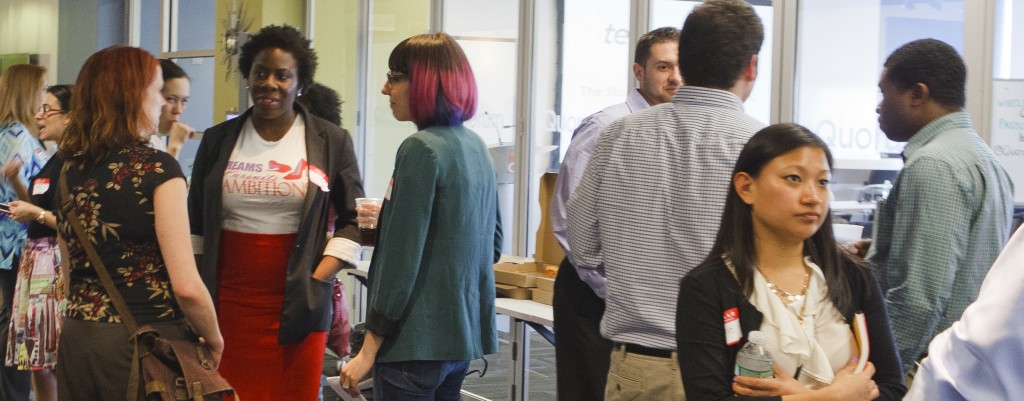Saying the Wrong Thing
My 1st lesson in the School of Workplace Hardknocks came when I was 19-years-old. My fellow inner-city day camp counselors and I were joking around as usual. At one point, I addressed the other counselors as “you people.” Where I came from, “you people” was the plural “you” of preference. But what happened next forever changed my personal and professional life.
The face of my African-American co-worker Michelle* turned to stone. A hush fell over the group. Then Michelle’s anger exploded like a firebomb. I was stunned. Other counselors tried to calm her, but Michelle went straight to our supervisor Tanya.
Tanya (a white woman most probably untrained in diversity herself) called me into her office and accused me of using a racial slur. I’ll never forget that feeling of utter confusion, panic, and shame that swept over me at that moment. In one fell swoop, Michelle and Tanya destroyed my confidence as a competent employee and more importantly, stripped my self-image as a tolerant and peace-loving human being. I didn’t lose my job but the rest of the summer we all walked on eggshells. My day-camp counseling days were over, even though I loved working with the kids.
Many Hard Knocks Later…
More than a decade had passed when during a funny banter-filled conference call, my white, middle-aged boss (who lived not far from where I grew up) made what I’d call a slightly offensive side comment. A tiny moment of silence followed but the jaunty conversation bounced back. Immediately afterwards, Emma, the sole African American team member, rang my desk phone. “Did you catch that?” she asked. “Yes I did,” I said. “I’m sorry, Emma. Let me apologize for him.” We had a frank conversation and then got back to work. Emma wasn’t looking for retribution; She just wanted some acknowledgement.
That night I sent some gratitude up to the universe for the harsh but valuable lesson from Michelle and Tanya. That first –and last– accusation of racism sent me on a curious journey into cultural diversity which allowed me to become the type of person with whom Emma could have a safe and honest chat about these clashes that happen daily in a diverse workplace.
Hearing the Buzz
That’s the trouble with cultures-of-origin: they are invisible to us. Like bees, we can’t hear the buzzing of our own hive. 19 and fresh from growing up in the sticks, I had no idea that the phrase “you people” could be construed as excluding. Like a bee’s buzz, we can’t notice our own endemic cultural traditions and turns of phrase and inevitably we bring those reference points to the workplace. How can we avoid the mishaps that result when different bees from various hives come together in one place?
I’ve put together 5 (somewhat controversial) hints that I’ve picked up over my two decades of experience, including formal cultural studies and working with diverse groups.
- You will misspeak. We’re all human. We’re going to trip up sometimes. The key is to be aware that we’re bees in the first place, and we each have our own unique buzz we learned from home hive of origin. If I’ve let “you people” slip, I apologize and explain that’s my version of “y’all.” I don’t ignore my possible mistake in hopes it’ll slide.
- Own up. Don’t assume everyone shares your buzz. Think of culture like Thanksgiving dinner – you can probably assume everyone has a turkey, but it’s a free-for-all for side dishes. Every family has their own unique recipes that are handed down for generations. Your side dishes will be different from everyone else’s. Be aware of that.
- Ignorance usually isn’t willful. Give people the benefit of the doubt. It’s possible they’ve not spent enough time out of their hive. Give them (and yourself) some time to adapt to the workplace culture. If people refuse to learn some diversity lessons, assume it’s fear and not hate that stymies them.
- Human Resources is not your friend. Yeah, I said it. The Human Resource department exists for one reason: to protect the organization against liability. Getting supervisors or Human Resources involved in each small clash isn’t wise or efficient. When possible, deal with whatever clash immediately by being honest and fair (with your co-workers and yourself). Seek out disciplinary help only when the offender is disruptive to the work flow.
- Drop the “Color-Blindness” Schtick. Claiming one exists outside of the greater cultural and historical context of the country, or one is “color-blind,” is just plain silly. Not every conversation has to be about race but it’s OK to acknowledge differences in experience. E.g., when white people avoid discussing race, it can make minority members feel a bit crazy, like they can hear the buzz and no-one else can or they can see a large elephant in the room but the white people act like it isn’t there. It’s there. Don’t pretend it isn’t.
Divide up and Discuss
I realize this conversation is tough. My presentation isn’t perfect. (I’m pretty sure I’ll hear from the Human Resource Managers out there!) But hopefully you can use this a a starting point. Please share your own stories, experiences, and wisdom in the comments. Thanks.
_________________
*Names changed, so don’t search my contacts list 😉
Also published on LINKEDIN
Photo credits: Header: Christine Cavalier. Bees: Sean Winters on Flickr


